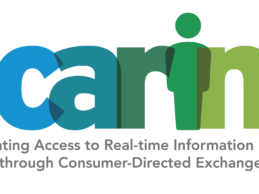The Institute for Healthcare improvement indicates that twice as many healthcare organizations cite health equity as a top priority today when compared to 2019. It may feel like the COVID-19 pandemic just made us collectively realize that health disparities exist, but they have been acknowledged in academic, government, and philanthropic spheres for over 4 decades. While I would love to debate if our collective realization was blissful ignorance or intentional avoidance, I will save those
Read More
CMS| News, Analysis, Insights - HIT Consultant
6 Success Strategies as CMS Drives More Accountable Care by 2030
For the better part of a decade, the shift toward value-based care in the U.S. has been driven by the establishment of the Center for Medicare and Medicaid Innovation (CMMI). Working to develop, test and evaluate new payment and delivery models in Medicare, Medicaid and the Children’s Health Insurance Program, CMMI has taken aim at improving the provider experience, generating better patient outcomes and reducing the overall cost of care.
Recently, CMMI stated that by 2030 every Medicare
Read More
Leveraging Telemedicine as a Workforce Multiplier for Clinicians
COVID has shown us that telemedicine is effective and easy to use. But why limit the use of virtual care to public health emergencies? With providers and clinicians under increasing strain from staffing gaps and other issues, telemedicine is a valuable solution.
Telemedicine has been a crucial tool in the fight against COVID-19, allowing patients and providers to stay connected even when quarantine rules keep them physically separated.
During the first phase of
Read More
Why Health Plans Are Vital to Health Equity
In Florida, where Black residents are three times more likely to be hospitalized or die from asthma-related complications than white residents, one researcher’s efforts to “strip away the jargon” related to asthma treatment strengthened patients’ engagement in a year-long clinical trial. The impact: development of an asthma regimen to help combat disparities in asthma management and outcomes.
The results are one example of the gains that can be made in addressing health inequities—differences
Read More
Innovaccer Joins the CARIN Alliance to Advance Interoperability
What You Should Know:
- Today, Innovaccer Inc., the Health Cloud company, announced that it has joined the CARIN Alliance (CARIN), a multisector collaborative working to rapidly advance the consumer-directed exchange of health information to improve the interoperability of healthcare data.
- Innovaccer will participate as a member of the multisector alliance to advance healthcare data sharing, enabling consumers, patients, and caregivers easier access to health
Read More
What Hospital Success Looks Like Under Value-Based Care
Hospitals are increasingly turning to value-based care initiatives to transform care delivery, lower the total cost of care, and improve patient outcomes. Unlike traditional fee-for-service (FFS) models that reimburse providers based on volume (i.e., the number of patient visits), providers are reimbursed based on the quality of care delivered in value-based care. Ultimately, success under these reimbursement models hinges upon seamless coordination between all stakeholders across the continuum
Read More
Breaking Down the Implications of New No Surprises Act Regulations
The importance of the No Surprises Act (NSA) cannot be overstated, as surprise medical bills have long been burdensome for patients in the U.S. healthcare system. In fact, more than half of all U.S. consumers have received an unexpectedly large medical bills.
The purpose of the No Surprises Act is to prevent surprise out-of-network bills, often for emergency services. For example, if your appendix bursts while at work, you would be rushed to the nearest hospital for an emergency
Read More
The No Surprises Act: How Payers Can Stay Compliant
As the healthcare system continues to evolve to adopt a more patient-centric approach, surprise billing has become a topic discussed by consumers and policymakers. Surprise billing can occur when a patient unknowingly receives care from providers that are outside their network. This can result in balance billing, the practice of billing a patient the difference between what their health plan covers and what the provider charges. Unfortunately, these bills are often the result of care provided in
Read More
Is It Finally Time for Hospital-at-Home or is Time Up?
All the signs point to a bright and expansive future for hospital-at-home programs, which have been growing steadily since the Centers for Medicare and Medicaid (CMS) created the Acute Hospital at Home waiver program in November 2020. As of March, nearly 100 health systems and more than 200 hospitals in 34 states had been approved for the program. Meanwhile, Forrester predicts the number of hospitals delivering acute care at home will triple in 2022. The reasons why are compelling: a study
Read More
How Patient Movement Benefits from Standardized Acuity Scoring
Nurses and providers typically assess patient acuity and volume at the beginning of their shift, whether formally or informally. Managers use patient acuity to balance nursing assignments, and nursing staff uses it to determine which patient care action should be prioritized next. Taking a standardized approach to acuity assessments not only provides more objectivity, but also gives hospitals the data they need to make a variety of tactical and strategic decisions, from daily unit staffing to
Read More










